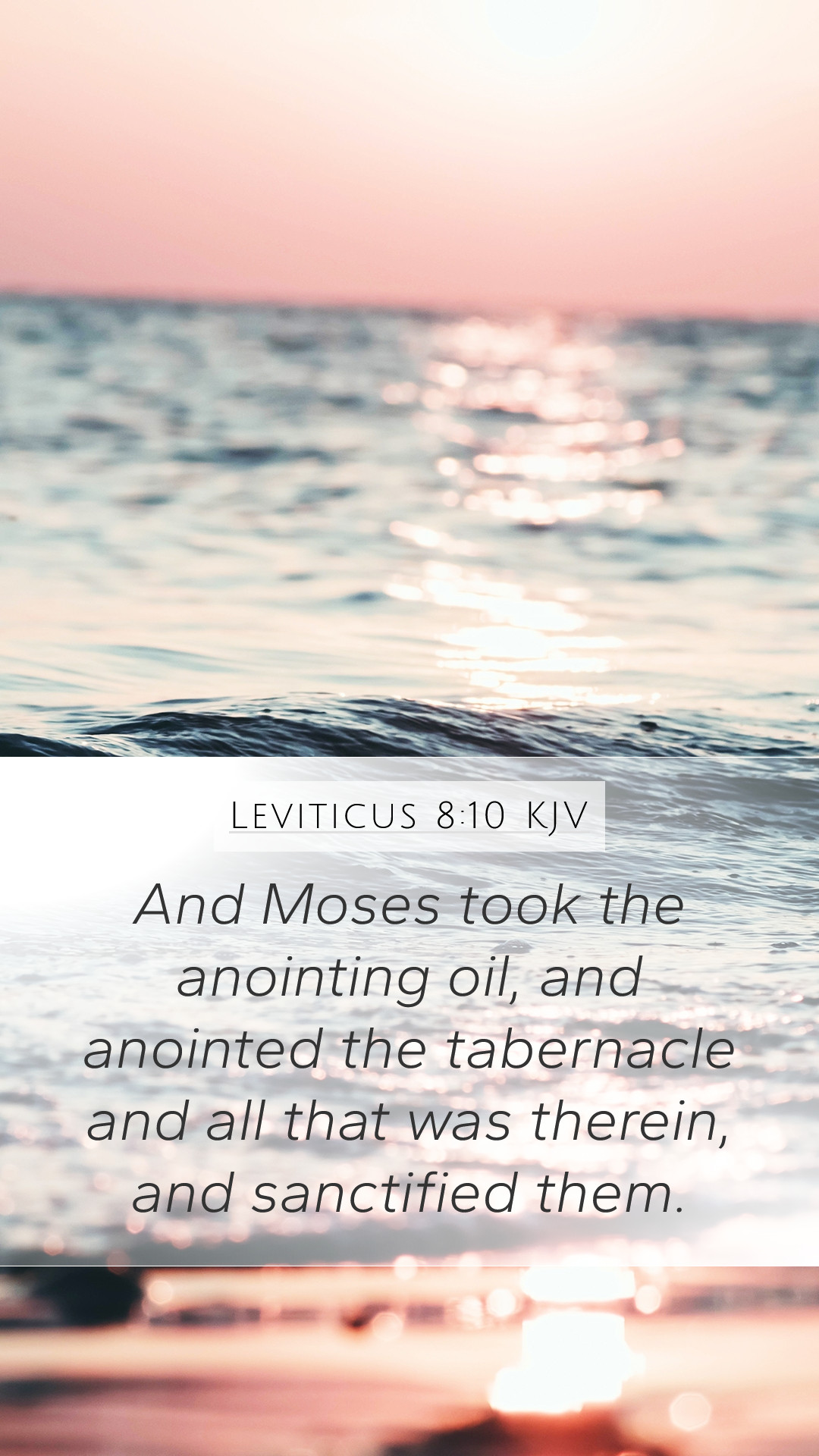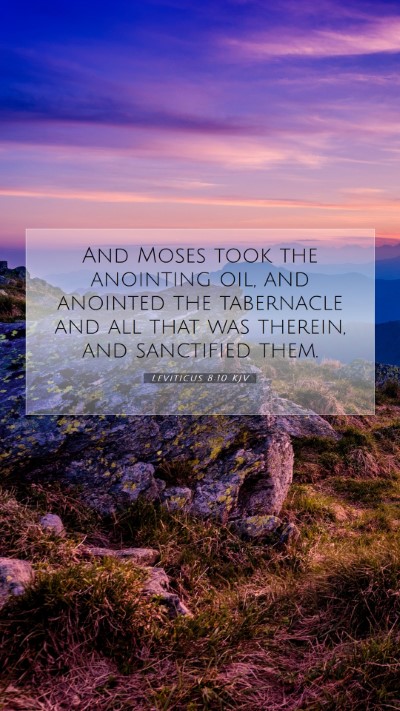Understanding Leviticus 8:10
Leviticus 8:10 states: "And Moses took the anointing oil and anointed the tabernacle and all that was in it, and consecrated them." This verse marks a significant moment in the establishment of the Levitical priesthood and highlights the importance of consecration in the worship of God.
Overview of the Verse
This section details the process of anointing and sanctification that takes place as part of the initiation of the priests. The act of anointing signifies setting apart people or items for divine service, making them sacred and dedicated to God.
Bible Verse Meaning
The meaning of Leviticus 8:10 can be derived from various public domain commentaries:
-
Matthew Henry's Commentary:
Henry emphasizes the ceremonial act of anointing, noting that it symbolizes the initiation of the priests into their sacred duties, indicating that they are not merely men but are chosen vessels for God’s special service.
-
Albert Barnes' Notes:
Barnes highlights that the anointing oil represents the Holy Spirit, indicating the empowerment of Moses as he consecrates the tabernacle and its items. This emphasizes the understanding that all service to God must be sanctified and empowered by divine authority.
-
Adam Clarke's Commentary:
Clarke elaborates on the significance of this anointing not just for the tabernacle but for all that is within, stressing that holiness encompasses not only the place of worship but everything associated with the worship process.
Interpretation and Significance
The interpretation of this verse extends beyond the historical context; it serves as a reminder of the sanctity of worship spaces and the seriousness with which God’s services should be approached. The consecration of the tabernacle serves as an important biblical exegesis point, highlighting that everything in the context of worship must be designed to honor God.
Bible Study Insights
This passage can greatly enhance one’s understanding of how God desires a set-apart space and people to commune with. It encourages believers to reflect on how they can apply these principles in their lives, acknowledging the importance of setting apart time and space for worship.
Related Bible Verses
The following cross-references provide further insight into the themes presented in Leviticus 8:10:
- Exodus 30:25-29: Discusses the ingredients of the anointing oil and its sacred use.
- Hebrews 9:1-5: Describes the tabernacle and its holy contents.
- 1 Peter 2:9: States that believers are a chosen generation, a royal priesthood, emphasizing the call to holiness.
- John 16:13: Notes the role of the Holy Spirit in guiding believers into all truth, reflecting the need for divine empowerment in all that is set apart for God.
- Psalm 51:7: In relation to the cleansing and sanctification processes associated with anointing.
Conclusion
In conclusion, Leviticus 8:10 provides profound insights into the principles of consecration and holiness in the context of worship. As one studies this verse and its related passages, it encourages a deeper appreciation of God's requirements for those who serve Him and a reminder of the necessity of being set apart for His purposes.
Further Study Resources
For those looking to explore more on this topic, consider engaging with:
- Online Bible study tools
- Bible study guides focused on Levitical laws
- Courses that cover the significance of sanctification in various biblical texts
This subject invites deeper exploration in Bible study groups and personal study sessions, to yield greater understanding of the significance behind each act of worship and its relevance in the contemporary believer’s life.


